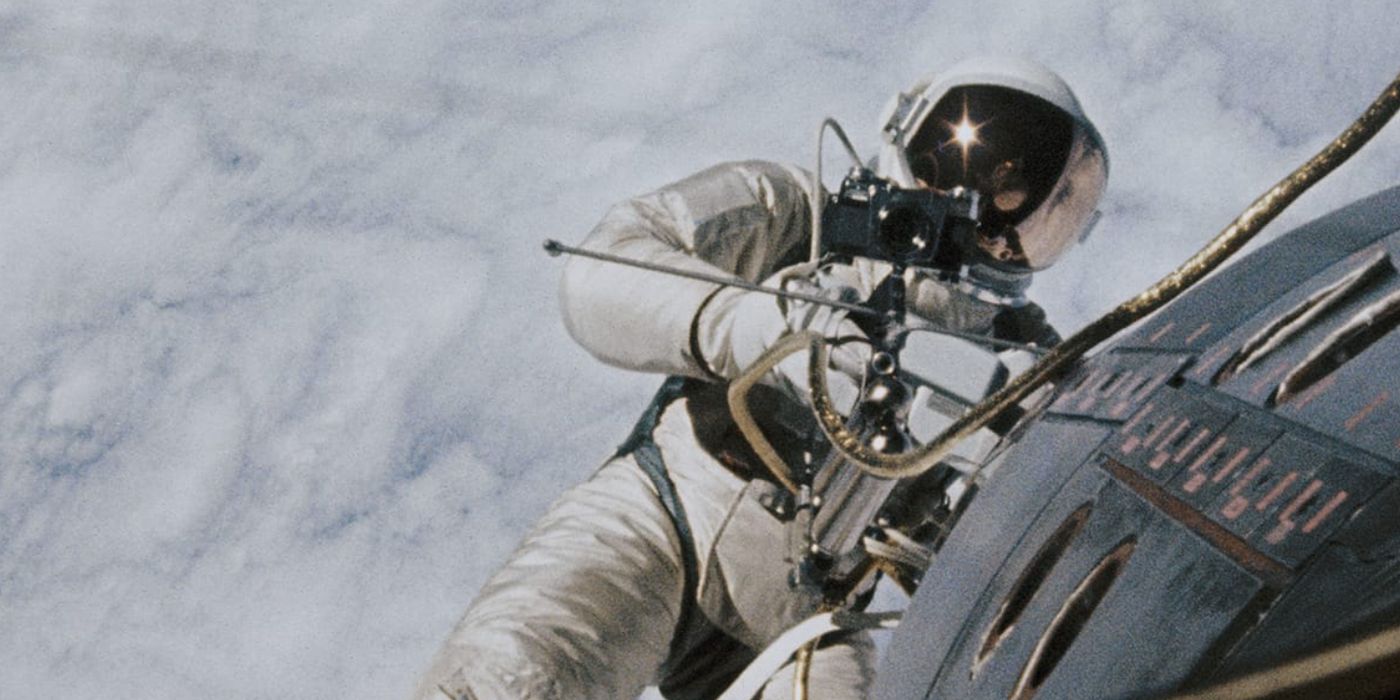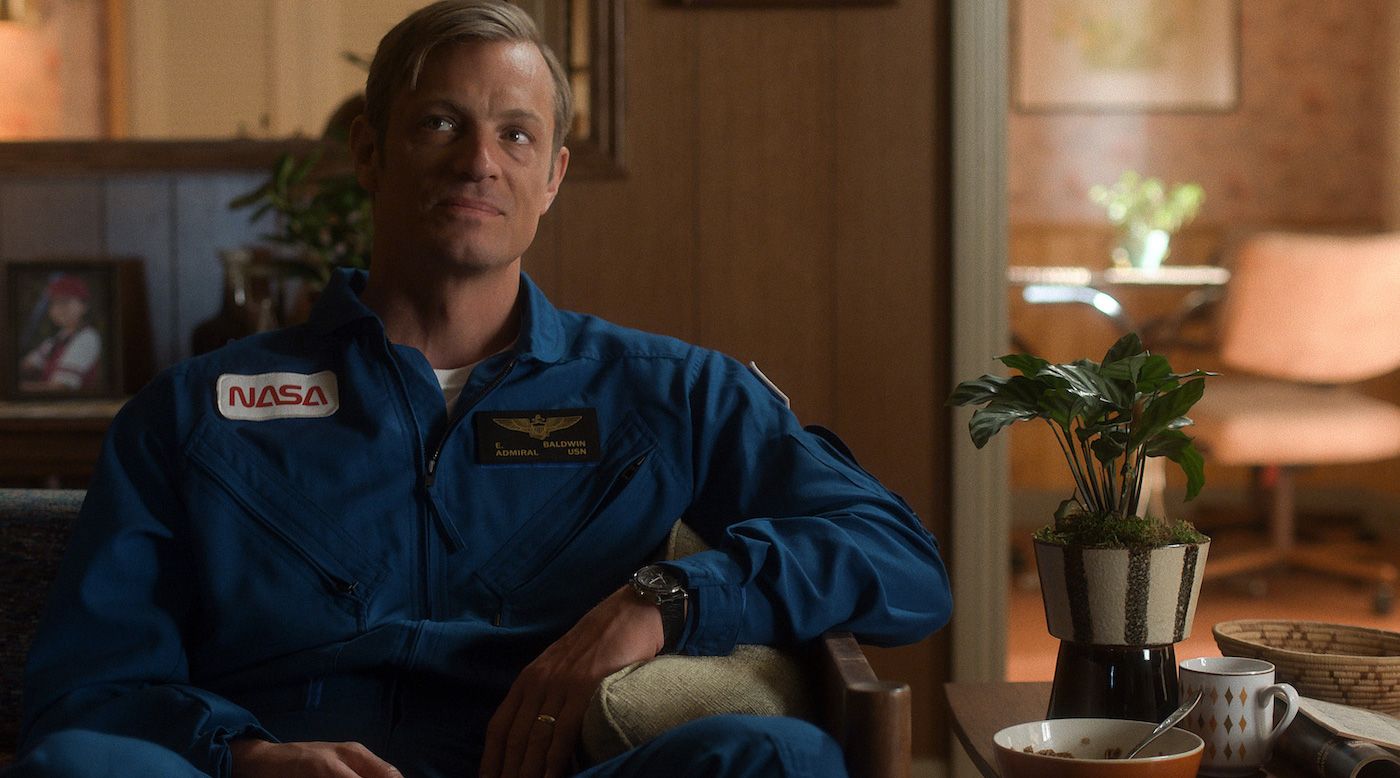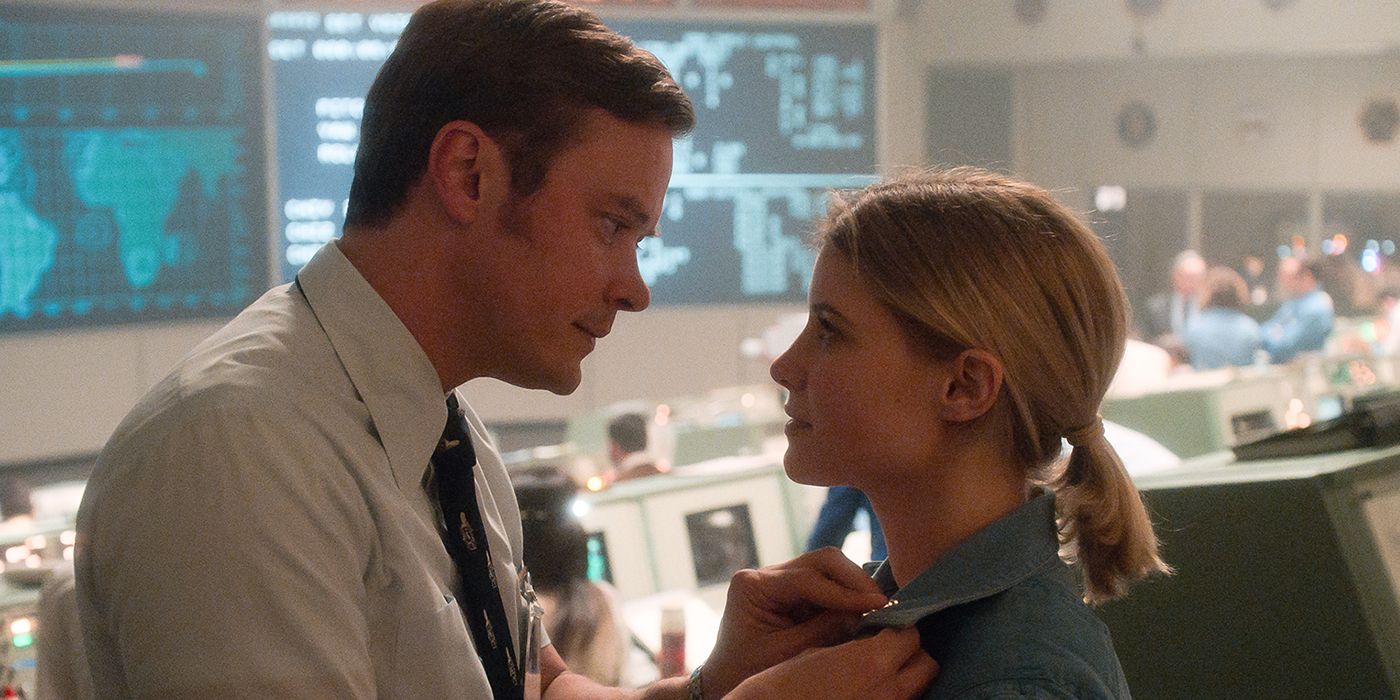The single most cliché saying about science fiction also happens to be the truest. The best of it has always on some level been able to provide a unique window into our own society. Whether it is framed positively or negatively, there is something tangible in the idea that, pun totally intended, brings it back down to earth. For All Mankind, created by Ronald D. Moore, Ben Nedivi, and Matt Wolpert presents an alternate history in which the Soviet Union reached the moon before the Americans, thereby making it so that the space race of the 1960s never ended. Because of this, the advancement of science and technology accelerates at a much faster rate than they do in our timeline and the series goes to great lengths to showcase both the positives and negatives that this rapid advancement has on the world. However, where For All Mankind truly shines is demonstrating that human exceptionalism only ever happens at the cost of the people who are tasked with advancing it.
The very first scene of the show depicts the moon landing, almost identically to the one we experienced almost 53 years ago. The only difference is it's a Soviet astronaut making the leap instead of Neil Armstrong. As the world watches in wonder and awe, the show focuses on Ed Baldwin (Joel Kinnaman) looking livid as he downs a glass of whiskey in a bar. As we come to learn in the show, he could very well have been the first man on the moon, but chose to play it safe and didn’t land. This need to be a pioneer is what drives him through the course of the series and in many ways he succeeds. He and Molly Cobb (Sonya Walger) were the first to collect ice that was found on the moon. He establishes the first colony to last on the moon. All this costs him is everything he used to hold dear.
The series goes to great lengths to make sure the audience knows that staying up there for long periods of time is nothing short of hell. Yet, after the death of his son Shane (Tait Blum) he doesn’t want to leave. This wasn’t out of some sense of duty to his country, but because he is simply too scared to face his own trauma. He spends so much time focusing on his drive to progress that he loses his wife, Karen (Shantel VanSanten) in the process. However, when all is said and done, it isn’t therapy that Ed wants, it is to go back into space and lead the mission that will put a man on Mars. In short, Ed Baldwin, one of the people most responsible for ensuring that exceptionalism continues to be one of, if not the single biggest priority in this alternate society is a complete mess of a human being. And it is this continued need for exceptionalism to reign supreme that causes him to lose more and more as the series progresses.
Even well-adjusted people are forced to sacrifice their own happiness in the show for exceptionalism to prevail. This is most exemplified by Ellen (Jodi Balfour)’s storyline. She is an astronaut, who happens to be gay. She married a gay man (Nate Coddry), both of whom are unable to come out due to the pressures of the politics involved with the people they work for. Appearing to be heterosexual, wholesome, controversy-free people, who can be ambassadors to NASA is just as, if not more important to the organization than actually being a qualified astronaut. Not being able to come out forces her to choose between her career and the woman she has fallen in love with. Ultimately, she knows that the platform she has garnered over the course of the series can go a long way in furthering the advancement of the space program. In many ways, this can help a lot of people, particularly women who get more opportunities, but this comes at the cost of her own personal happiness.
The human cost of exceptionalism is far higher than simply an emotional one. Since the space race never ended, neither did the Cold War, causing both governments to feel the need to bring weapons to the moon. This inevitably ended in disaster when a misunderstanding led to the killing of two Soviet astronauts trying to defect. This led the Soviets to take over the Jamestown base and nearly start World War III. The entire chain reaction to these events was triggered by the societal need for exceptionalism, and it was the people on the lunar surface who paid the price, ultimately leading to the deaths of Tracy and Gordo Stevens. (Sarah Jones and Michael Dorman)
While the series makes sure to show how high of a cost exceptionalism has on the people at the forefront, it doesn’t outright condemn it. More so, it shows that progress is determined by choice and this is both the cause of both the many failures and the successes that occur in the world. In this world of constantly moving progress, women and people of color were accepted in the space program much faster than their real world counterparts. Unfortunately, this was not out of a push for equality as much as it was a politically charged movement that the Nixon administration pushed to appear to be ahead of the Soviets. Nevertheless, when given these opportunities, they are shown to shine.
In the previously mentioned episode where the Soviets have taken Jamestown and nearly caused war, it was also the need for exceptionalism that ultimately stopped it, because of the people chosen to go up there. Danielle Poole (Krys Marshall) and the Soviet astronauts who had previously been assigned to capture a picture shaking hands inside a cooperating spacecraft that both governments built. After the Jamestown takeover, they were both ordered to scrap the mission and return home. Instead, Danielle and the Soviet astronauts decided to get the picture anyway and it was so touching that peace ended up prevailing. It was exceptionalism that drove tensions to that point and also exceptionalism that ended up saving the day in the end. The key factor was that they chose the right people to be at the forefront in the end.
At its heart, For All Mankind is a very human show that demonstrates the people who are responsible for maintaining the space race that determines the future of society do so at the cost of their own mental well-being. The need for more scientific advancement drives the narrative within the show, but the series goes out of its way to show that doing this has a cost that is distinctly human.



